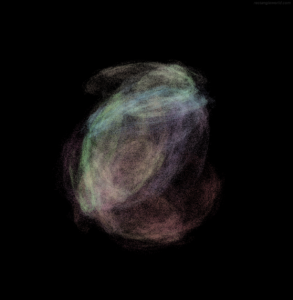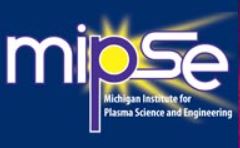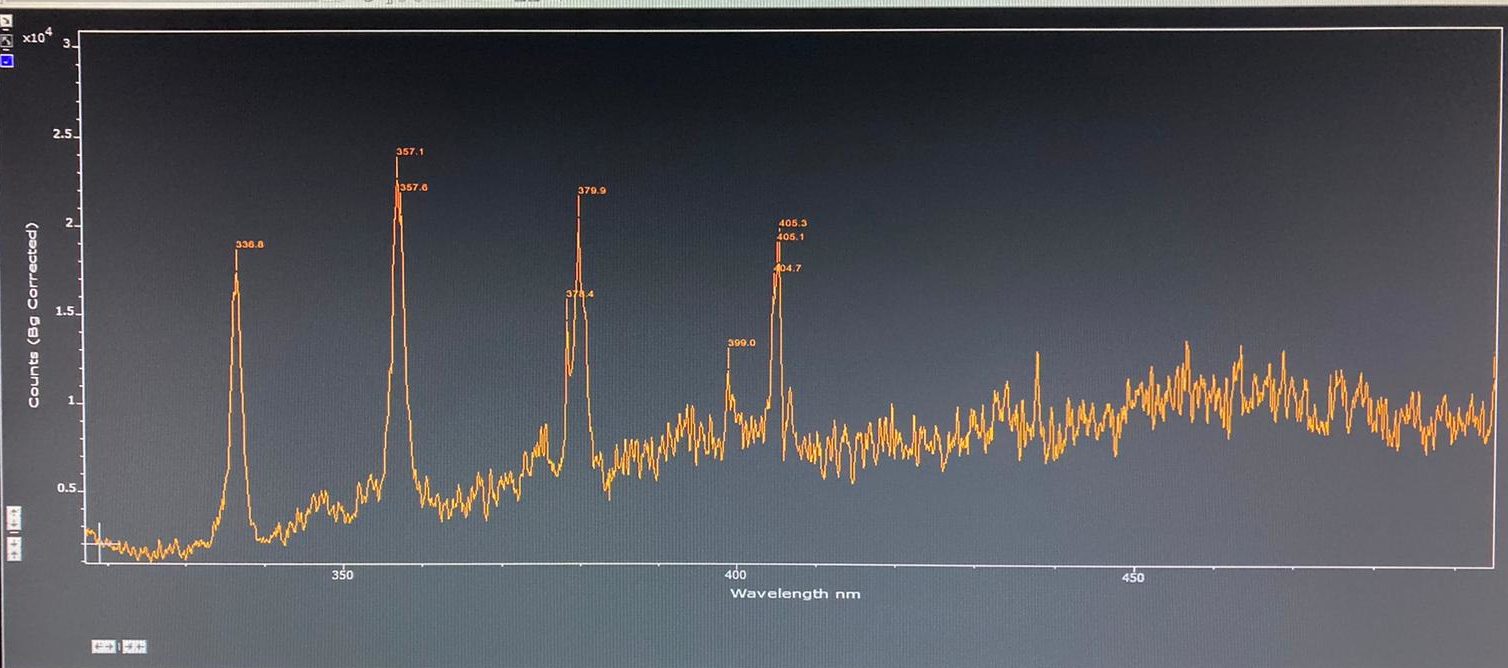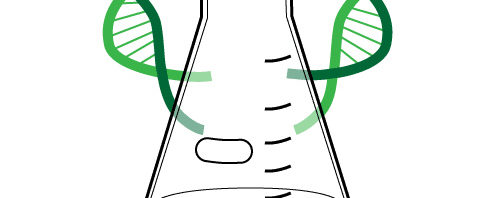 Here is an Alice in Chains song. It is the first song of the first album after their original lead singer committed suicide. A sad and hopeful opening. It is as if the wings of the phoenix born from its ashes are broken. I mean, the old glamorous days are over, like a retired colonel watching the children on the street from his corner. Let’s look at the lyrics of the song.
Here is an Alice in Chains song. It is the first song of the first album after their original lead singer committed suicide. A sad and hopeful opening. It is as if the wings of the phoenix born from its ashes are broken. I mean, the old glamorous days are over, like a retired colonel watching the children on the street from his corner. Let’s look at the lyrics of the song.
Author: Nazli Turan
Seminar notes: Osmotic Pressure on Cell Membranes in a Saline Interacting with Weakly Ionized Plasma
 Dr. Mikhail Shneider was looking for an alternative answer to this question: can plasma generated at air-liquid interface be used to modify cell biology? His research is focused on osmosis – diffusion of water – in cell environment activated by a non-equilibrium plasma source. He studied ion movements due to electric field in the concept of electro-osmosis and emphasized that hydrated ions with a water shell around become larger in size and slower in mobility. The varying dimensions and time scales can be utilized for the selectivity of cell membrane. The osmotic pressure outside cells can be controlled by plasma and be adjusted to damage cell membrane. Additionally, air or oxygen plasma-treated water becomes acidic and disrupts the outer walls of bacteria and viruses. He specifically underlined that osmotic pressure cannot be the only mechanism destroying cells; however, its role cannot be studied in detail yet.
Dr. Mikhail Shneider was looking for an alternative answer to this question: can plasma generated at air-liquid interface be used to modify cell biology? His research is focused on osmosis – diffusion of water – in cell environment activated by a non-equilibrium plasma source. He studied ion movements due to electric field in the concept of electro-osmosis and emphasized that hydrated ions with a water shell around become larger in size and slower in mobility. The varying dimensions and time scales can be utilized for the selectivity of cell membrane. The osmotic pressure outside cells can be controlled by plasma and be adjusted to damage cell membrane. Additionally, air or oxygen plasma-treated water becomes acidic and disrupts the outer walls of bacteria and viruses. He specifically underlined that osmotic pressure cannot be the only mechanism destroying cells; however, its role cannot be studied in detail yet.
https://mipse.umich.edu/files/oltp_2021-02-23_Shneider.pdf
Seminar notes: Plasma Design of 2D Nanostructures and Beyond Graphene
Prof. Uroš Cvelbar discussed their work on plasma assisted graphene nanowall growth on plasma treated substrates in changing conditions of pressure and temperature as well as different gas mixtures. His group and collaborators worked on a computational model of large scale production. The model confirmed that lateral surface diffusion through nanoflakes are the main mechanism in catalysis rather than vertical particle transfer because of the ion bombardment causing surface defects and resulting an increase in surface adsorption energy. This was the key takeaway for my future research on understanding of the mechanisms of plasma sintering.
https://mipse.umich.edu/ltp_seminars.php
Notes from Gaseous Electronics Conference (GEC) 2020
Well… Having the whole conference on Zoom was an interesting experience but in fact I like it! There were little to zero technical difficulties and we were able to ask our questions on a chat box. Except for free food, I might prefer online conferences in the future. Because, I took great notes during presentations and while watching the pre-recorded ones! I also attended a very important workshop for myself: Women in Plasma Science. I want to share my notes and opinions on it.
Continue reading “Notes from Gaseous Electronics Conference (GEC) 2020”
Winter is here

South Bend, Dec, 2020
Such a tough year! At least we are still healthy… The sun is going down in the painting, yet it will rise eventually!
Faster Better Cheaper Publications
This article discusses the knowledge market actors, which I argue are institutions, instruments, and individuals. Knowledge-based hierarchy or inequality in a neoliberal context is creating the conditions for gaming, where competition, productivity, and efficiency are the norms of climbing in the hierarchy. I contend that what accounts for the knowledge management strategies is academic platforms as a new meta-medium which holds large portion of data while enabling faster better cheaper knowledge transactions. Platforms are promising a larger share to non-experts in the market while they are cheering up for automation and open science.
Levellers and diggers in modern times
The discussion of Levellers and Diggers in recent STS community base their roots on the Lippmann-Dewey Debate in 1920s. The main question they were circling around was that “how to locate the roles of expertise in a functioning democracy”. The one thing they agreed upon was the problem of public and its definition. Dewey advocated that the public must get organized and educated to deal with the problems emerged in the state. In contrast, Lippmann considered the public as an abstract entity and paved the way for the modern neoliberal aphorisms about irrational citizens. The contemporary fellow of Dewey would be Jasonoff as a Leveller and the fellow of Lippmann would be Oreskes as a Digger.
Possible traps of open science
Open science movement was the concept I heard first when I was translating news about Sci-Hub and its creator Aleksandra Elbakyan for a science magazine. The title of the first article was ‘“Who’s downloading pirated papers? Everyone” as published on Sciencemag April 2016. The second one was an interview: “Meet Alexandra Elbakyan, the researcher who’s breaking the law to make science free for all” on Vox February 2016. I was fascinated by the idea of free access as a master student who did not access majority of science journals in Turkey unless you are unaware of the existence of Sci-Hub. Being retrospective, I totally understand the hype about open science now; however, knowing that degrading expertise and relying on big data for future manipulations are two giant turnarounds in front of us, I have become a skeptical of open science and the reasons are elaborated in the following parts.
Peer review?
The organization and application of science policies in the US dictated how science conducted and how scientist would approach science. The measure of successful and sometimes valuable/profitable science is the practice of peer review with procedural changes. The three regimes in policies can be restated as follows: the first term with the driving force of industry, the second term with the driving force of military, and the third term with the driving force of market. Therefore, peer review process should be analyzed under different sources of motivation in the contemporary history.
The three regimes of science policy in Turkey
The three regimes discussed for the US are not entirely true for my country of choice, which is Turkey. The historical and structural reasons are worth to discuss in terms of placing non-western countries to the scheme. While WW1 was happening on lands far away from the US, it had some devastating effects for the losing side. Specifically, Germany faced with very heavy economical conditions and left without any military support, while the Ottoman Empire entirely collapsed and the mainland Turkey was invaded by English, French, Italian, Russian, and Greek armies. After ongoing wars from 1919 to 1924, the Republic of Turkey gained its independence and started to build its modern institutions. The chronological development of science policies can be investigated in three periods: 1924-1950 the cultural revolution, 1950-1980 private/state back and forth, 1980-today the neoliberal adaptation.
Continue reading “The three regimes of science policy in Turkey”






Recent Comments